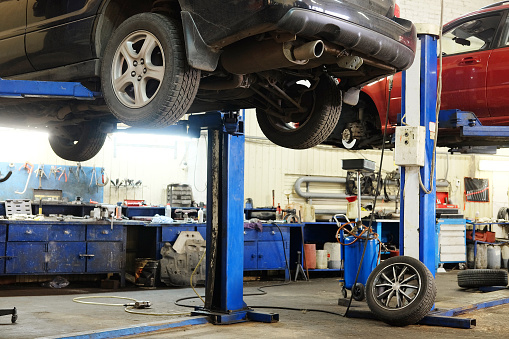All Categories
Featured
Routine engine tune-ups are important for keeping your automobile's performance, improving fuel performance, and extending its lifespan. Whether you're a skilled automobile proprietor or a newbie, comprehending the crucial facets of an engine tune-up can assist you maintain your cars and truck running efficiently for many years. Here are some crucial tips to lead you via the procedure.
- Modification the Spark Plugs. Trigger plugs are little yet mighty parts that play an essential function in sparking the fuel-air combination in your engine. Over time, they can wear or end up being fouled, bring about bad engine performance, decreased fuel performance, and tough begins.
During a tune-up, examine your ignition system for wear and replace them as essential. For most automobiles, ignition system must be changed every 30,000 to 100,000 miles, depending on the type and material. Fresh ignition system guarantee reliable combustion and smoother engine operation.
- Examine and Change the Air Filter. The air filter is your engine's very first line of defense versus dust, debris, and various other pollutants. A blocked or filthy air filter can limit air movement, triggering your engine to work more difficult and consume more fuel.
Examine your air filter throughout a tune-up and replace it if it's dirty or past its suggested solution interval. A tidy air filter improves engine performance and boosts gas economic situation.
- Inspect the Fuel System. With time, your gas system can accumulate dust and carbon down payments, minimizing engine efficiency and gas performance. Cleansing the fuel injectors and fuel lines during a tune-up aids maintain appropriate gas distribution and combustion.
You can use a fuel system cleaner or have a professional mechanic carry out an extra detailed cleaning. This action is especially beneficial for older lorries or vehicles regularly driven in stop-and-go traffic.
- Examine the Belts and Pipes. Belts and hoses are essential for various engine functions, such as running the generator, water pump, and air conditioning. Throughout a tune-up, check for fractures, fraying, or indications of wear on these elements.
Change any type of worn-out belts and hoses to stop possible failures. A busted belt or dripping tube can cause engine overheating or loss of power, so attending to these issues promptly is important.
- Change the Engine Oil and Oil Filter. Engine oil is crucial for lubricating relocating parts, decreasing friction, and controling engine temperature. In time, oil ends up being polluted and sheds its effectiveness.
As part of a tune-up, replace the engine oil and oil filter. Make use of the type of oil advised by your lorry's manufacturer and adhere to the suggested adjustment intervals. Clean oil keeps your engine running smoothly and avoids early wear.
- Check the Battery and Billing System. A healthy battery is crucial for beginning your vehicle and powering its electric systems. During a tune-up, examine the battery's voltage and inspect the terminals for deterioration. Tidy the terminals if required and make sure a secure link.
Additionally, test the alternator and billing system to ensure your battery remains charged during operation. If your battery is weak or old, consider replacing it to prevent unexpected failures.
- Flush and Re-fill the Coolant. The air conditioning system regulates your engine's temperature level, stopping it from overheating. Old or infected coolant can shed its effectiveness, causing prospective engine damages.
Throughout a tune-up, flush the old coolant and replace it with a fresh blend. Likewise, check the radiator, thermostat, and tubes for leaks or damage. Keeping the cooling system in good problem guarantees your engine operates at the best temperature.

- Address Warning Lights and Unusual Symptoms. Modern automobiles are outfitted with diagnostic systems that signal you to prospective issues via control panel caution lights. If your check engine light or any kind of other warning signs get on, resolve them throughout your tune-up.
Furthermore, take notice of uncommon signs such as weird noises, harsh idling, or lowered gas effectiveness. An expert technician can diagnose and fix these troubles during the tune-up process.
- Don't Neglect the Exhaust System. Your auto's exhaust system gets rid of damaging gases from the engine and makes sure proper discharges. Examine the exhaust system for leakages, rust, or damage throughout a tune-up. A malfunctioning exhaust system can influence engine performance and lead to ecological and safety and security concerns.
- Usage High-Quality Parts and Fluids. When changing parts or completing liquids throughout a tune-up, constantly choose top notch products that meet your vehicle's specs. Utilizing substandard components or inaccurate liquids can adversely impact your engine's efficiency and longevity.
Conclusion: Routine Tune-Ups Are Trick to Engine Wellness. Making the effort to tune up your engine guarantees it operates successfully, saves gas, and decreases the threat of break downs. Whether you carry out these jobs yourself or rely upon a trusted auto mechanic, routine tune-ups are a financial investment in your vehicle's dependability and long life. Adhere to these pointers, and you'll delight in a smoother, much more reputable ride for several years to come.
Latest Posts
Wood Flooring Experts - Floor Covering Orland Park Installation & Sales
Engine Tune-Up Tips: Boost Efficiency and Prolong Engine Life
Transform Your Property with Premium Fencing Solutions from Washington Fence
More
Latest Posts
Wood Flooring Experts - Floor Covering Orland Park Installation & Sales
Engine Tune-Up Tips: Boost Efficiency and Prolong Engine Life
Transform Your Property with Premium Fencing Solutions from Washington Fence
